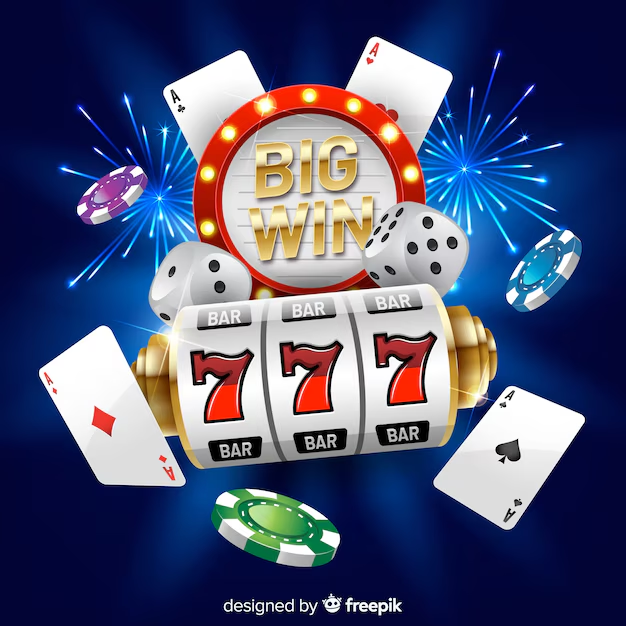Slot hunting is a fascinating subculture within the world of casino gaming. Over the decades, dedicated gamblers have developed various techniques to maximize their winnings, understand slot machine patterns, and chase the elusive jackpot. The individuals who actively engage in these pursuits, known as “Slot Hunters,” are part of a growing global community.
This article explores the history, evolution, and impact of Slot Hunters, from the early days of mechanical slot machines to modern digital gaming platforms.
The Origins of Slot Machines and Early Gamblers
The Birth of Slot Machines
Slot Hunters history begins with the slot machine’s invention. In 1895, Charles Fey, a San Francisco-based mechanic, created the Liberty Bell, widely considered the first true slot machine. Featuring three reels and a handful of symbols, including the now-iconic Liberty Bell icon, Fey’s invention became an instant success in bars and saloons.
The First Gamblers
As slot machines gained popularity, they attracted gamblers eager to test their luck. Early players began to develop strategies to increase their odds of winning, even though these early machines were largely mechanical and unpredictable. The concept of “slot hunting” was born as players studied payout patterns and machine behaviors.
The Evolution of Slot Machine Culture
From Bars to Casinos
Initially, slot machines were simple entertainment devices placed in bars, but by the early 20th century, they made their way into casinos. As gambling regulations evolved, more sophisticated machines were introduced, increasing the excitement of playing slots.
The Rise of Progressive Jackpots
The introduction of progressive jackpots in the 1980s changed the way people played slot machines. These games pooled a portion of each bet into a large jackpot, attracting more players and fostering the rise of slot hunters—players who actively sought out machines with the highest potential payouts.
Who Are Slot Hunters? Defining the Term
A “Slot Hunter” is someone who actively looks for slot machines that offer the best chances of winning. They employ various strategies, such as:
- Searching for machines that have not paid out in a long time (a debated tactic).
- Studying payout percentages and return-to-player (RTP) rates.
- Leveraging casino promotions and free spins.
- Using bankroll management techniques to extend their playtime.
While many casual players enjoy slots for fun, Slot Hunters approach the game more analytically.
The Rise of Slot Hunters in the 20th Century
The 1950s: The Slot Machine Boom
The mid-20th century saw a dramatic increase in slot machine popularity, particularly in Las Vegas. With casinos recognizing the revenue potential, they introduced more machines, attracting even more slot hunters.
The 1960s–1980s: Technology Meets Gambling
During this period, slot machines transitioned from purely mechanical devices to electromechanical and early digital machines. This shift allowed for the introduction of new game mechanics, bonus rounds, and higher payouts, making slot hunting even more appealing.
Slot Hunters and the Age of Mechanical Slots
The Psychology of Slot Hunters
Mechanical slot machines were relatively simple but still held an air of mystery. Slot Hunters analyzed these machines, believing that some were “due” for a payout. Many strategies developed during this time still persist in gambling folklore today.
Casino Responses
As slot hunting became more common, casinos adjusted their machines to ensure randomness. They introduced coin limits, payout caps, and other measures to maintain fairness.
The Impact of Las Vegas and Atlantic City on Slot Hunting
The legalization of gambling in Las Vegas (1931) and Atlantic City (1976) created major hubs for Slot Hunters. Casinos in these cities became testing grounds for new slot machine innovations, and slot hunters flocked to them to try their luck.
How Technology Changed Slot Hunting (1970s–1990s)
The introduction of random number generators (RNGs) in the 1980s ensured that slot outcomes were completely random, debunking many traditional slot-hunting strategies. However, this did not deter serious players, who instead shifted their focus to RTP percentages and volatility.
The Online Casino Revolution and the New-Age Slot Hunters
Rise of Digital Slots
With the advent of online casinos in the 1990s, slot hunting moved to the internet. Online slot hunters now analyze payout rates, play demo versions, and utilize welcome bonuses to increase their chances of winning.
Slot Streaming and Communities
Platforms like YouTube and Twitch have given rise to slot-hunting influencers who share their experiences, strategies, and big wins with thousands of viewers.
Slot Hunting Strategies: Myths vs. Reality
- Myth: Machines that haven’t paid out in a while are “due” for a win.
- Reality: RNGs ensure that each spin is independent of the previous one.
- Myth: Playing at certain times of the day increases your odds.
- Reality: Casinos do not adjust payouts based on the time of day.
- Myth: Slot placement affects payouts.
- Reality: While some casinos place high-paying machines in visible areas, RNGs still control outcomes.
Famous Slot Hunters in History
Some dedicated gamblers have gained fame for their slot-hunting skills, using math, pattern recognition, and promotional offers to gain an edge over casinos.
Modern Slot Hunters and Social Media Influence
Social media has revolutionized slot hunting. Players now share tips, live-stream their wins, and review slot games, building a vibrant community of enthusiasts.
The Future of Slot Hunting: Trends and Predictions
AI-Powered Slot Machines
Future slots may incorporate artificial intelligence to enhance gameplay.
Cryptocurrency Casinos
The rise of blockchain technology may change how slot hunting works in online casinos.
VR Slot Machines
Virtual reality slots could offer an immersive new way to experience gambling.
Slot Hunting Ethics: Responsible Gambling and Fair Play
While slot hunting can be exciting, responsible gambling is crucial. Players should set limits, avoid chasing losses, and ensure they are playing for entertainment rather than financial gain.
Conclusion: The Enduring Legacy of Slot Hunters
Slot hunting has evolved from a niche pursuit to a widely recognized activity. Whether in physical casinos or online platforms, Slot Hunters continue to push the boundaries of gambling strategies, making this culture an enduring part of the casino world.


